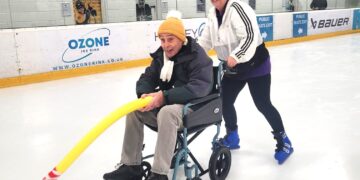Rabbits are becoming increasingly popular as pets and with the right care and handling can be very rewarding and loving companions of the household.
If you have, or are going to be bringing home, a furry friend then there are a few key things you need to think about.
First of all plan to have more than one. Rabbits are very social animals and benefit greatly from having a friend. So much so that we advise to bring them into the vets together as having a companion helps greatly to lower their stress levels.
Rabbits need plenty of space at home. This includes a house area where they can stand up on their hind legs and can travel at least three hops. They also need an exercise pen or run.
They can be housed inside or outside but need adequate shelter from the weather and protection from extremes in temperature.
When it is cold make sure to check that their water bowl or bottle hasn’t frozen. Water bottles can also become clogged up so it is important to check that they are working regularly.

Rabbits need hide boxes and tunnels to help them feel secure. You can also get toys for them to play with. Cardboard tubes with grass or fresh leaves inside, wicker balls and sisal mats are good examples.
Things to play with and space to move helps to keep your rabbit happy and healthy. It promotes muscle and bone health, prevents obesity and keeps their guts moving which is extremely important for a rabbit.
A healthy diet also keeps their guts moving and plays a vital role in dental health. At least 80% of their diet should be fresh grass or a good quality hay. However, please never give a rabbit mown grass.
The heat produced during mowing causes the grass to ferment slightly which can cause gut problems that can be fatal. They can also have a handful of fresh leaves and veg daily and only a very small amount of pellets.
Rabbits very commonly get dental and gut problems so if you notice they are eating less or if they stop eating please contact your vet.
They can become soiled around their rears and this can cause skin irritations and a disease called flystrike. Daily removal of soiled bedding and bathing your rabbit in warm water followed by towel drying can help prevent this.
There are vaccinations and other preventative medications which your rabbits may need and we also tend to advise neutering your rabbit. Please contact your vet to discuss specifics about these processes. We are always happy talk and say hello to your furry friends.
Claire Turner is a Veterinary Surgeon at St Vincents Veterinary Surgery, a family-owned practice providing personal care for all your pets in and around Wokingham
















































